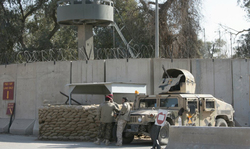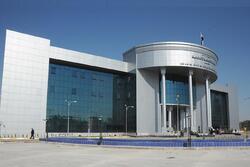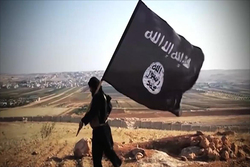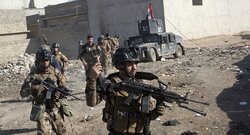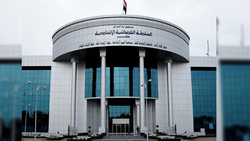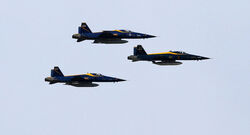"The third eye": Iraqis' new way to maintain security
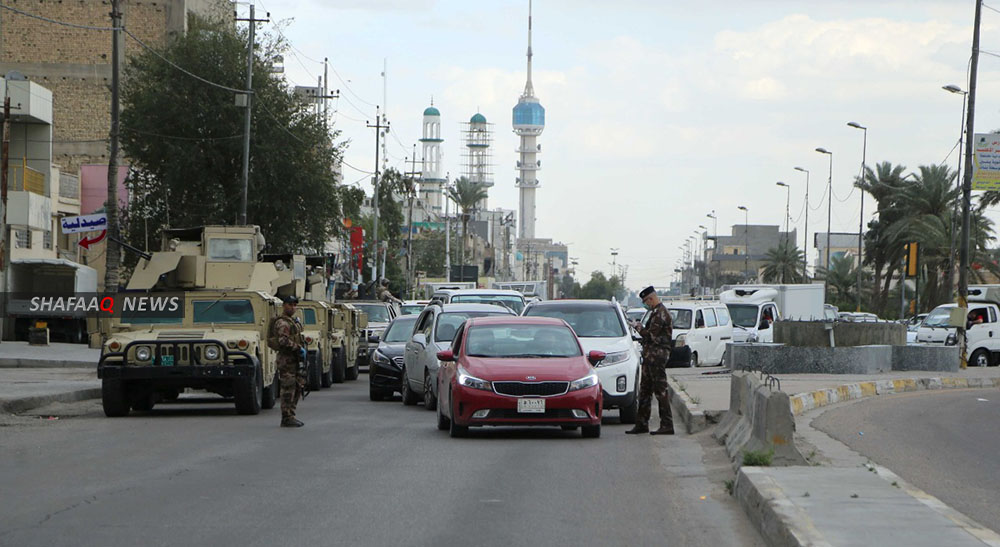
Shafaq News/ Security is a form of freedom from potential harm that may be caused by unwanted company. Since the stone age, it has been a principal practice of our ancestors to protect their goods and people. In the digital era, we have progressed intellectually and even more technologically. Unlike in the past, we do not have to physically guard something that needs protection because we have surveillance cameras.
Video surveillance is used to monitor and record videos in order to have physical evidence. In addition, it is used as a security feature by many countries to prevent crime and terrorism in public places and private properties. The variety of usage is also continuously growing over the past decade.
People have peace of mind if they see cameras in public places. Most lawbreakers prefer to do their crimes when no one is watching. Having security cameras installed in places where there are no witnesses will surely dismay criminals. Keep in mind, that though it may deter some criminals, it will not prevent crimes from happening but will help solve one. Recordings can be examined to discover who the culprit is and when the incident happened. The recordings can be used as evidence against criminals when they are prosecuted in a court of law.
"These cameras help to protect our properties from thieves. As an employee, I am often outside my home for long periods. Thus, installing cameras is a must," said Alia Mohammed, a Basra resident.
"It is also necessary to keep an eye on housekeepers, if there is any, in case none of the family members is at home," she added, emphasizing "the importance of placing surveillance cameras in front of government departments and institutions, including schools, to fend off any unwanted situations that the students may be exposed to, such as kidnapping, hit and runs, etc."
The Interior Ministry uses these cameras to monitor densely populated public intersections and citizens' gathering places. In addition, the law allows security authorities to require residents to review what the cameras capture if a crime occurs.
According to the Ministry of Interior, the widespread use of surveillance cameras in Baghdad has significantly reduced crime rates because they serve as "policemen's third eye".
Brigadier General Nibras Mohammed, director of the Ministry of Interior's anti-rumors department, explained that "these cameras help in tracking criminals, and the Ministry's call for citizens to install them helped to speed up the arrests."
As for what prevented its spread throughout Baghdad, Mohammed indicated, "surveillance cameras could not cover all areas due to the capital's continuous urban expansion," noting, "Baghdad established a project to place surveillance cameras to monitor public streets and detect outlaw cases and crimes."
"The ministry urged the importation and distribution of top-quality cameras on citizens."
The work of offices selling and installing surveillance cameras in the country flourished due to the ministry's encouragement.
The office that sells them usually installs them and teaches the buyers how to use and manage them via home or mobile phone screens.
According to the owner of a company selling surveillance cameras in Baghdad, "the most requested cameras are outdoor cameras that film streets and houses with the modern AHD system, called full color."
"There are three types of surveillance cameras: fixed, mobile, and internal. The latter is typically used inside offices, whereas mobile cameras are visible in government departments. On the other hand, hidden cameras are illegal, and those who trade them are prosecuted. They can be found on social media and some shops."
As for the prices of cameras, he explained, "They have decreased significantly during the recent period, and the price of the whole system now stands at 125,000 Iraqi dinars. It includes four cameras and can be controlled even through the phone," pointing out, "the most city that requires to be equipped with surveillance cameras is Baghdad, followed by Basra."
"Developed countries are seeking to install surveillance cameras to monitor the movements of vehicles and wanted persons, and Iraq has begun this step by installing modern camera systems in all governorates. Specialized people were hired to monitor internal and external roads, as well as areas where congestion occurs," according to Badr al-Ziadi, a former member of the parliamentary Security and Defense Committee.
According to Al-Ziadi, "The practice of installing surveillance cameras in residential areas, as well as inside shops, restaurants, and other establishments, is spreading. This resulted in the detection of many crimes; even those who intend to commit a crime decide to avoid the area for fear of being tracked down and arrested."
